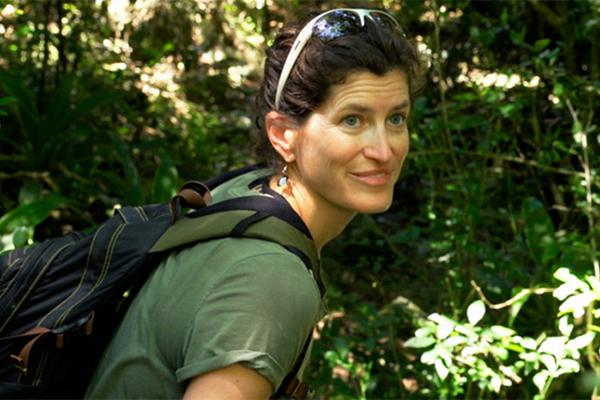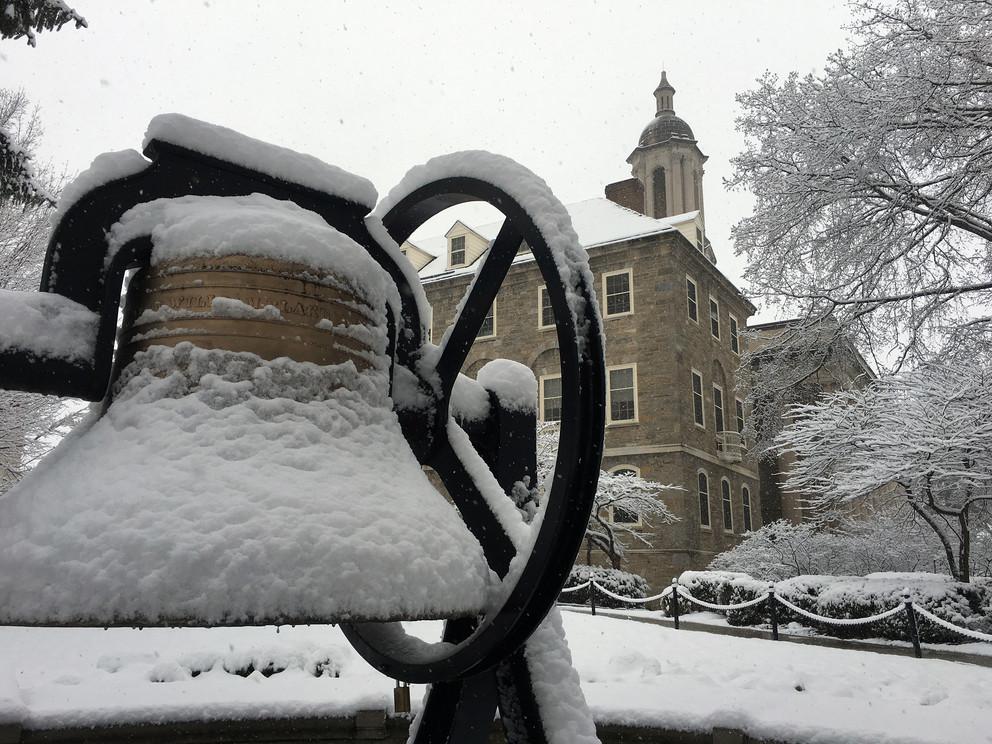Erica Smithwick, ecologist and associate professor of geography, is among four women profiled who inspire students to pursue careers in science, technology, engineering and math.
The College of Earth and Mineral Sciences (EMS) is hosting a conversation with Pulitzer Prize winner Julia Wolfe along with other events commemorating the history of coal mining in Pennsylvania.
"I've talked to people who are optimistic about sustainability and others who are pessimistic. The question isn’t whether the glass is half full or half empty because, in the end, the glass will always be half empty when you’re thirsty," said Bharadwaj, an energy engineering student in Penn State’s College of Earth and Mineral Sciences.
One of Casey Lehecka’s biggest goals before graduating was to get a job as a broadcast meteorologist. Now, with graduation still a few months away, she has already worked as a broadcast meteorologist at WJAC, an NBC affiliate in Johnstown, Pennsylvania, for three months.
he Penn State Student Association of Environmental Science and Engineering (SAESE) will hold the 20th annual Environmental Chemistry and Microbiology Student Symposium (ECMSS) from 5-9 p.m. on April 21 and 9 a.m.-6 p.m. on April 22 in the Forest Resources Building. Abstract submission deadline is March 24.
A Pulitzer Prize-winning journalist Michael Hiltzik, a business columnist who has written for the Los Angeles Times for more than three decades, will visit University Park to discuss “Big Science, Politics and the Press.”
Penn State once again has been recognized by the U.S. Department of State’s Bureau of Educational and Cultural Affairs as one of the U.S. colleges and universities that produced the most Fulbright Scholars in the 2016-17 awards cycle. This year, 11 scholars were recipients of this prestigious grant and Penn State tied for second place.
The 13th annual New Faces of an Ancient People Traditional American Indian Powwow will be held April 1-2 at Mount Nittany Middle School in Boalsburg.
The summer of 2017 will see an expansion of the Student Transitional Experiences Program (STEP), an optional summer program designed for students making the junior-year transition to University Park from another Penn State campus.
Roger M. Downs, the Ruby S. and E. Willard Miller Professor of Geography in the College of Earth and Mineral Sciences, has been selected to receive the American Association of Geographers (AAG) 2017 Presidential Achievement Award.











